Just a few days ago, in Erbil, Kurdistan Region, visual artist Shayan Shahir Nuradeen unveiled her latest solo exhibition titled “Enough,” as part of a global campaign to combat child hunger commissioned by World Vision International, a leading humanitarian organization.
Nuradeen displayed nine paintings that shed light on various hardships faced by Iraqi children. These paintings, all based on firsthand encounters the artist had in the governorates of Nineveh and Kirkuk, address issues such as child labor, early marriage, displacement due to climate change, and disability caused by conflict.
“I want my paintings to convey a message of hope, even in the midst of despair,” she explains. “Through my art, I hope to amplify the voices of marginalized people and advocate for their rights.”
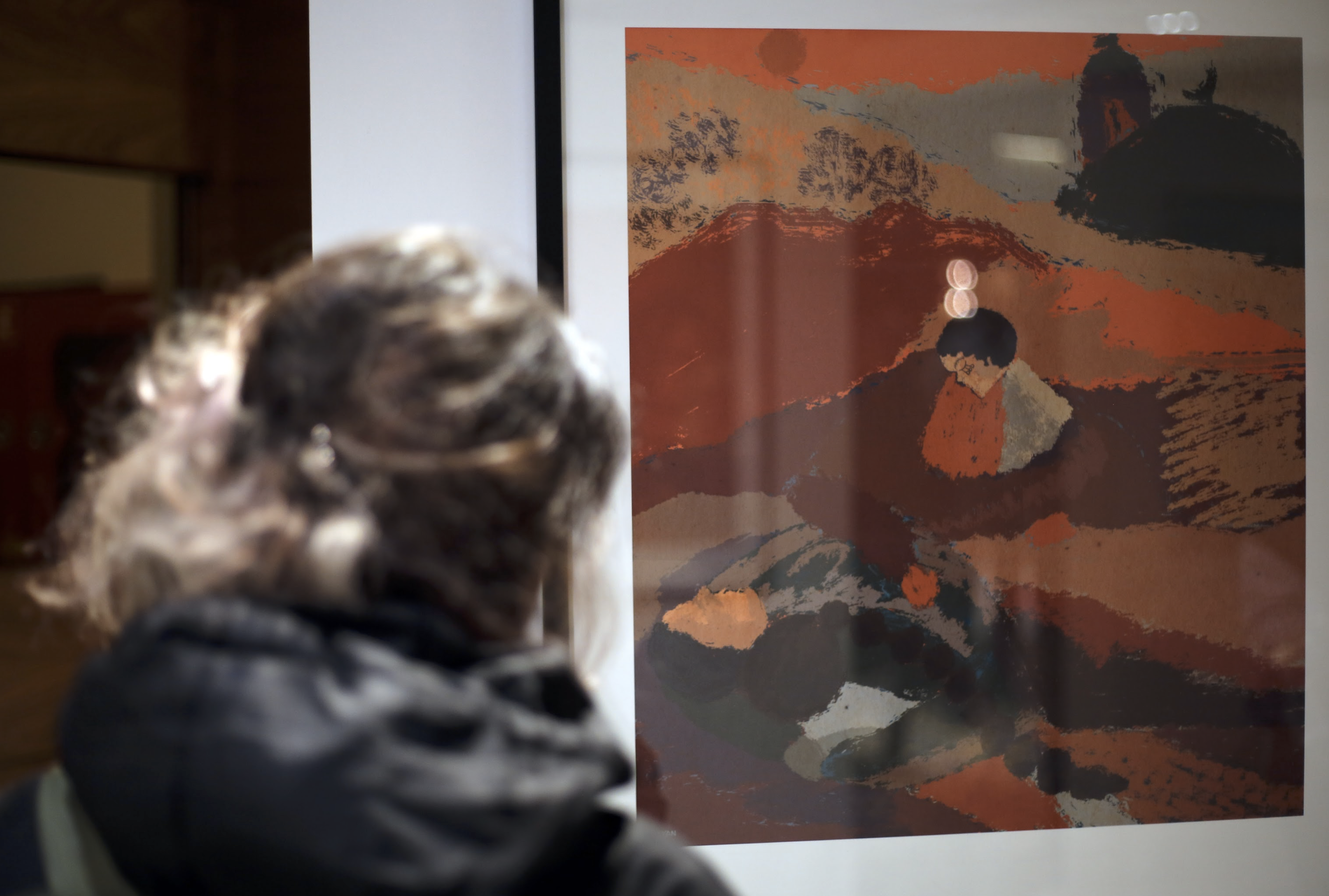
Nuradeen, 40, is a well-known artist in the Kurdistan Region and is curious about the human experience and people’s life stories. “I’m constantly daydreaming about people,” Nuradeen says.
She also describes herself as an artist who wants to promote human rights. “I want my paintings to highlight and convey messages about human rights issues, both locally and internationally,” Nuradeen states.
Even though they address difficult topics, viewing Nuradeen’s paintings makes one happy. The subject is dark, but the colors are vibrant, and there is a glimmer of hope in each of her works.
“I like to offer a glimmer of hope. When there is so much darkness around someone, a little care can provide a lot of hope. It’s critical for me to convey hope in my paintings, even if the subject is dark,” she explains.
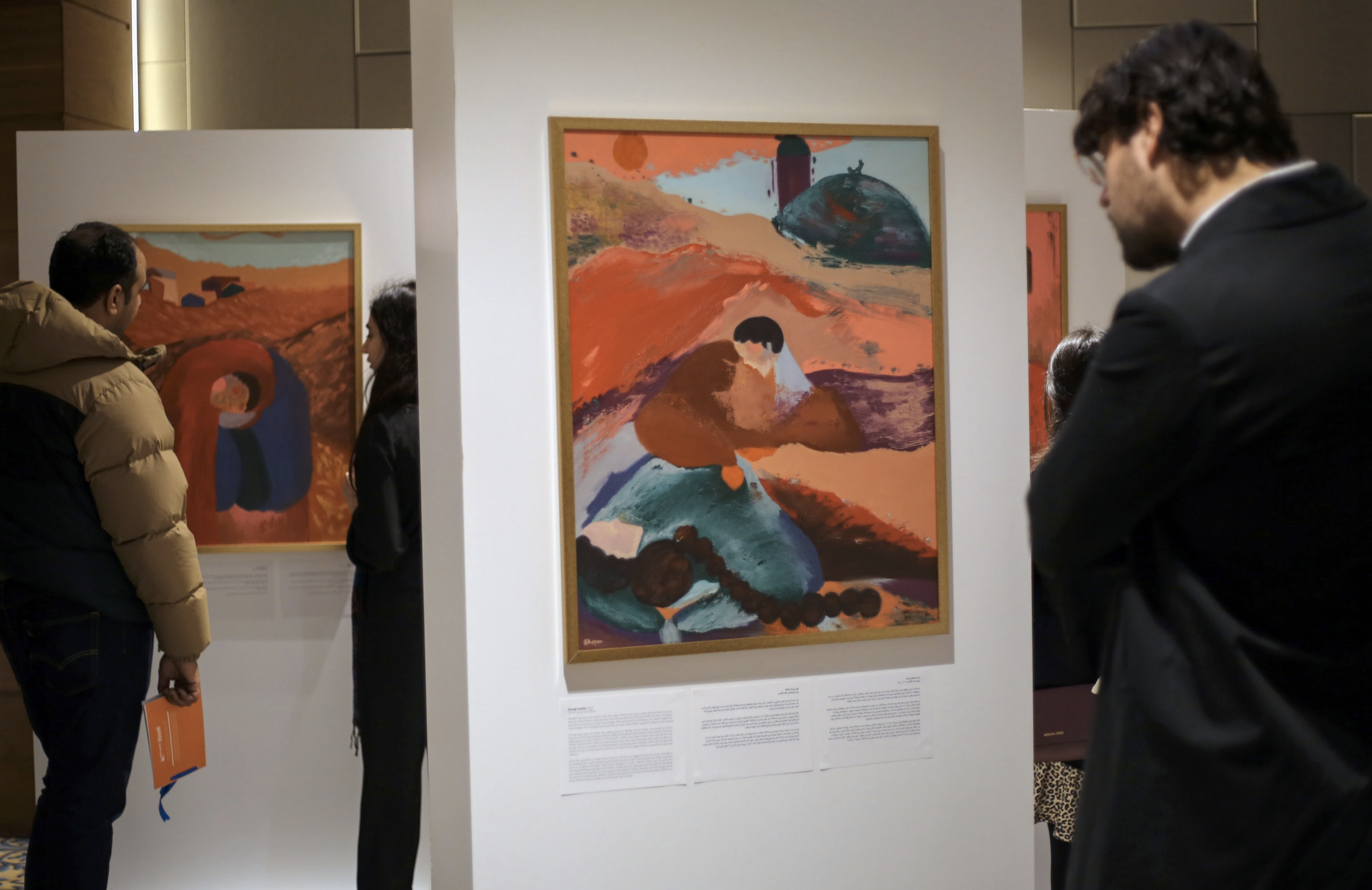
Nuradeen became very emotional when she began discussing women’s rights and freedom. She is deeply affected by the violence committed against women in Kurdish society. Women’s rights and a struggle to prevent violence against women are strongly reflected in her art.
Her solo exhibition “Souls and Dreams Never Forgotten” featured the stories of seven women who had been victims of “honor crimes” in Kurdish communities, not only in the Kurdistan Region, but also in Sweden, Turkey, and the UK.
In her paintings, she attempted to portray the beautiful side of these women by depicting their dreams, such as simply wanting to be with a guy or going out and enjoying the simple pleasures of life. However, they were denied those simple dreams.
“My message was that all of these women had beautiful souls and had the right to live with dignity,” says Nuradeen.
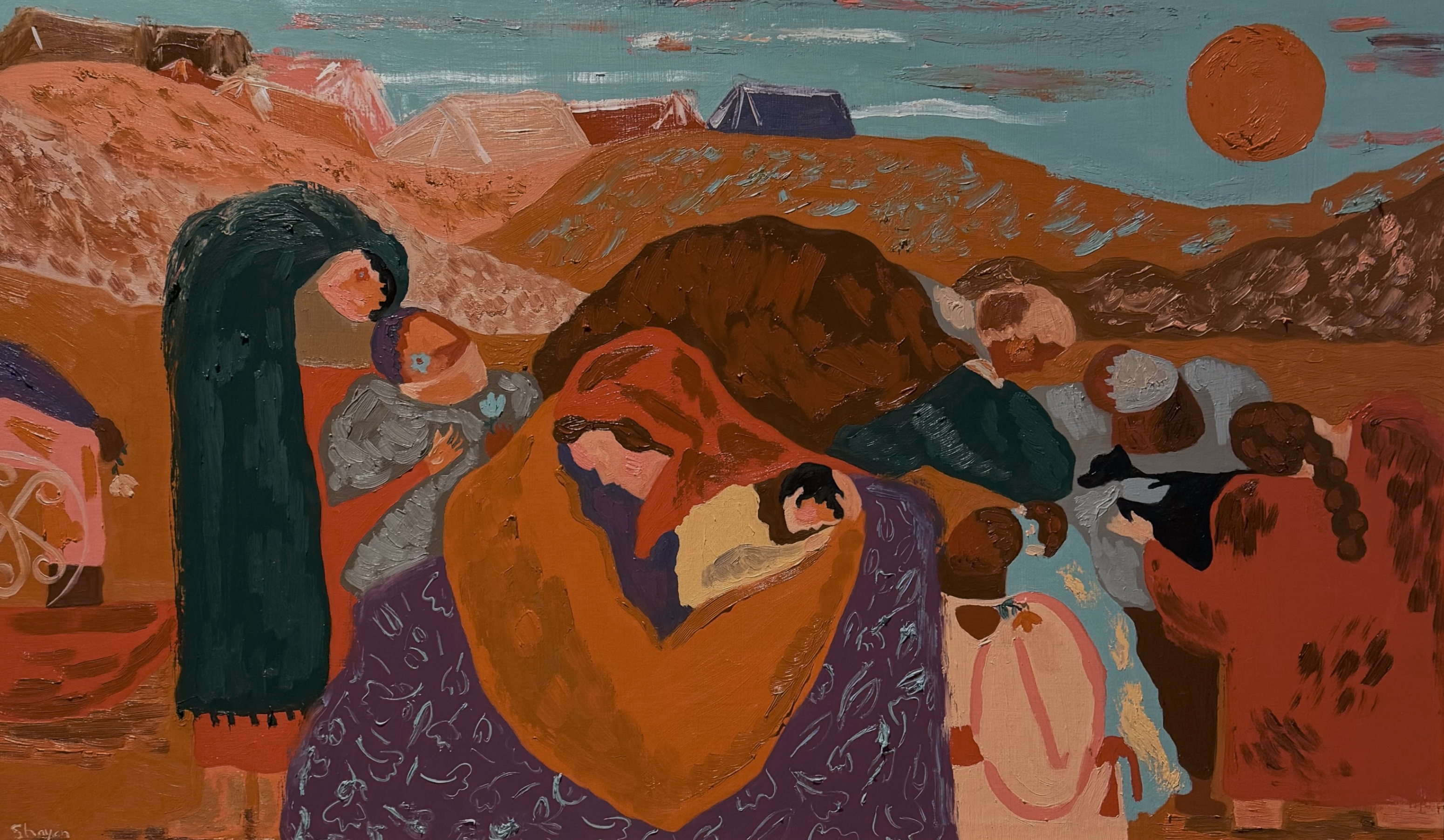
“A belief in positivity and creativity”
Nuradeen’s father, an architect and civil engineer, nurtured her artistic spirit.
“My father encouraged me to draw and paint from a very young age,” Nuradeen explains. “I recall him in his studio at home. We had a living room with a large table. He was always designing things on large pieces of paper. I’d often see him standing up in this room, sketching.”
Even during the turmoil of the Gulf War, her father’s encouragement served as a lifeline, guiding Nuradeen through the darkest of times.
“Even during the war, my father gave me drawing materials,” she recalls. “His support allowed me to escape into my imagination, shielding me from the harsh realities outside.”
Tragically, her father’s guidance was cut short when he passed away when she was just nine years old. Yet, his influence continued to shape Nuradeen’s path.
“His encouragement to see the world as beautiful and colorful stayed with me,” she reflects. “Despite the hardships, he instilled in me a belief in positivity and creativity.”
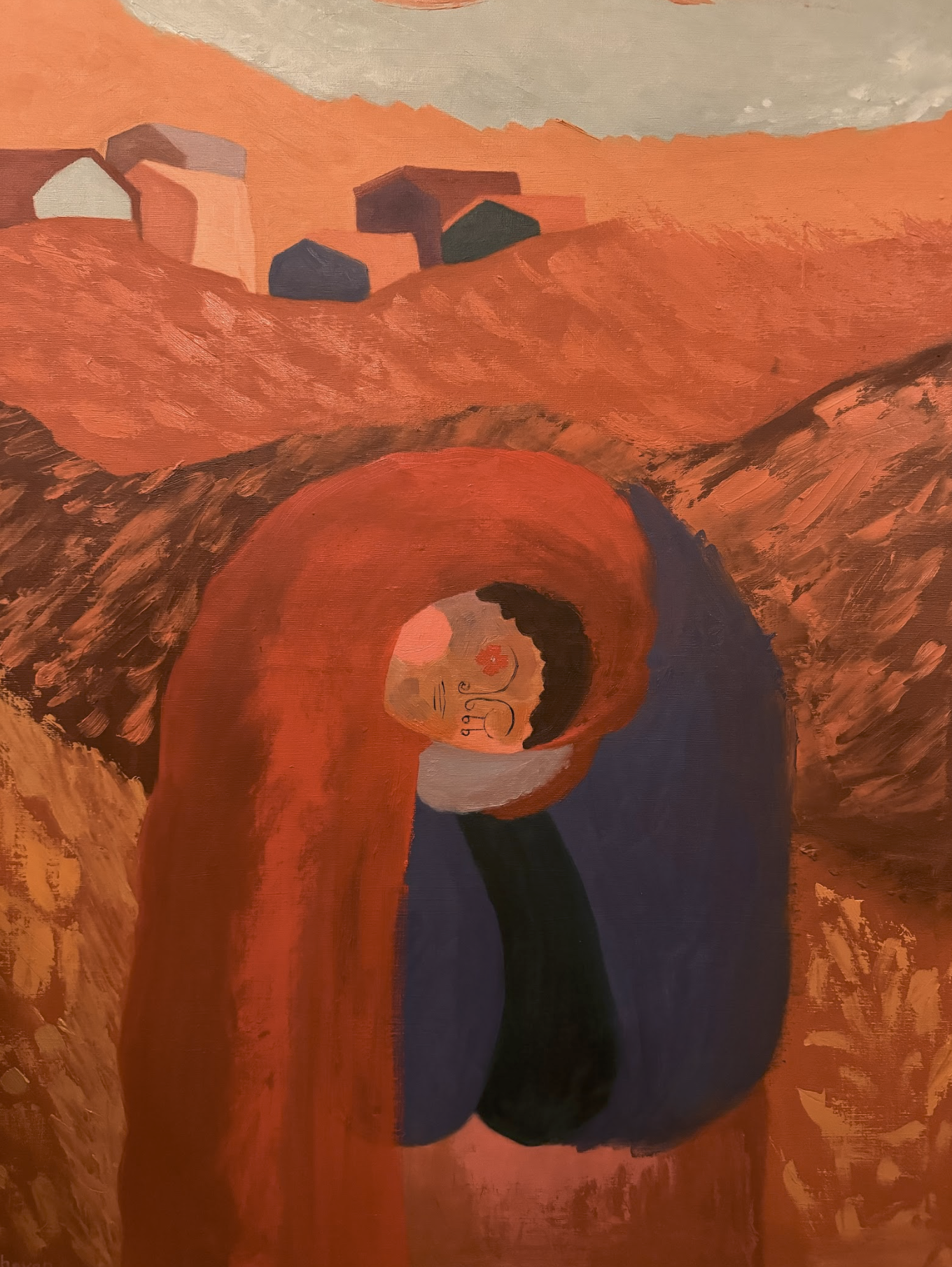
When she was a child, her mother hired Tawana Marjan, an art teacher, to teach Nuradeen how to paint. However, Nuradeen took a detour after everyone encouraged her to study business, saying that she could not make a living from art.
“I felt pressured to meet societal expectations,” she admits. “Everyone around me was interested in science and academia, but I knew my passion was elsewhere.”
Nuradeen travelled to the United States in 2008 to pursue a business degree. However, her time there rekindled her artistic zeal.
“Experiencing American culture and seeing the celebration of individualism inspired me,” she says. “I realized I couldn’t ignore my true calling any longer.”
“I found myself sneaking into art history classes next to my business school,” she admits. “The memories of my childhood drawings resurfaced, igniting my desire to pursue art once more.”
Her time in the United States, particularly in cities like Boston and New York, served as a catalyst for her artistic awakening.
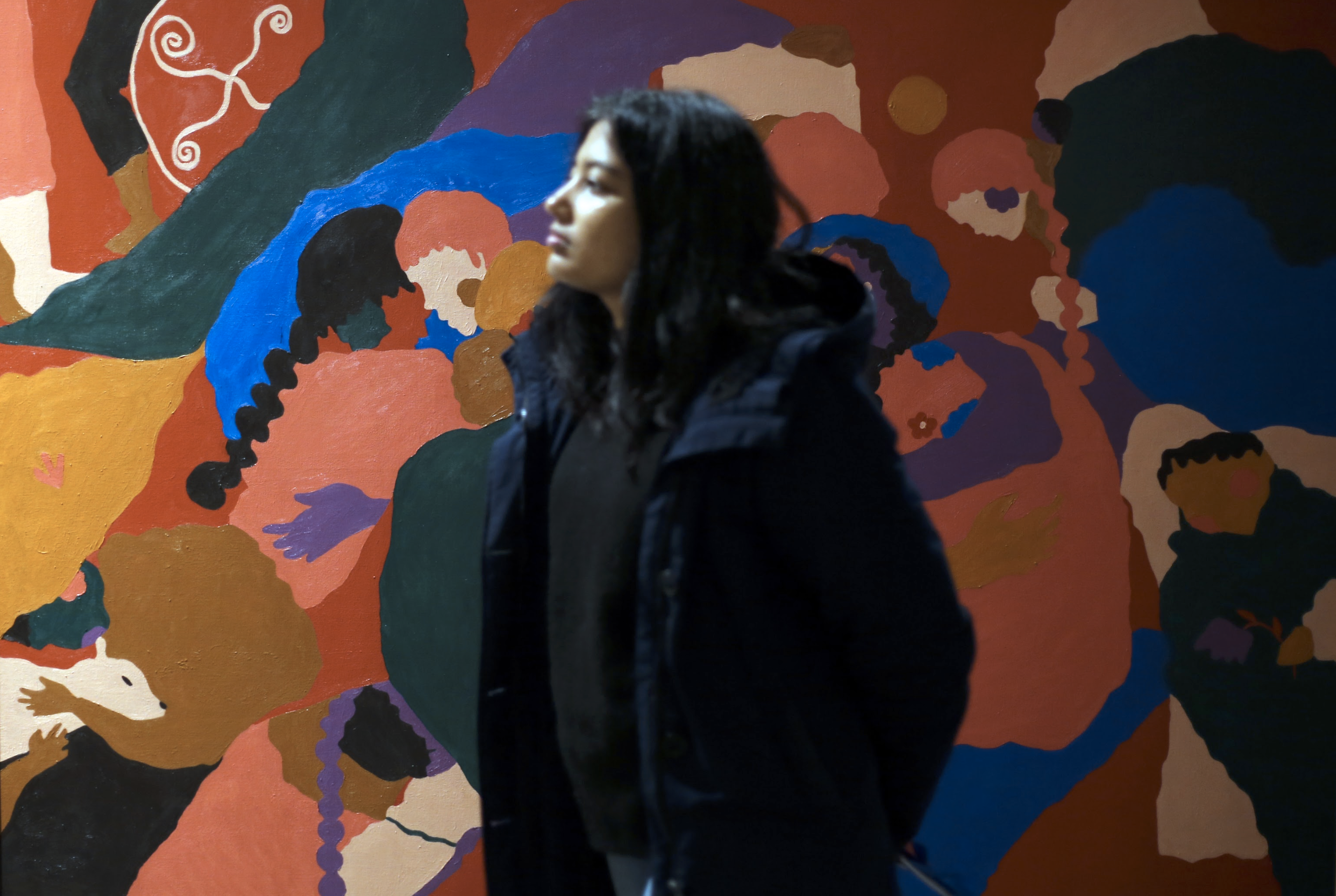
“I stumbled upon street artists in New York City, and that’s when I realized that art was my true calling,” Nuradeen explains. Inspired by the diverse artistic expressions around her, she took the initiative to enroll in life drawing classes and immerse herself in the creative process.
Nuradeen returned to the Kurdistan Region determined to pursue her passion wholeheartedly. She sought advice from local art teachers, including Faisal Othman and Hazhar, to improve her skills and refine her artistic vision.
“Art became a means of self-expression for me,” she says. “It enabled me to express my emotions and advocate for causes close to my heart.”
In 2019, she held her first solo exhibition at the French Institute in Erbil.
“If it hadn’t been for the French Institute, no one would have known or recognized me,” Nuradeen explains.
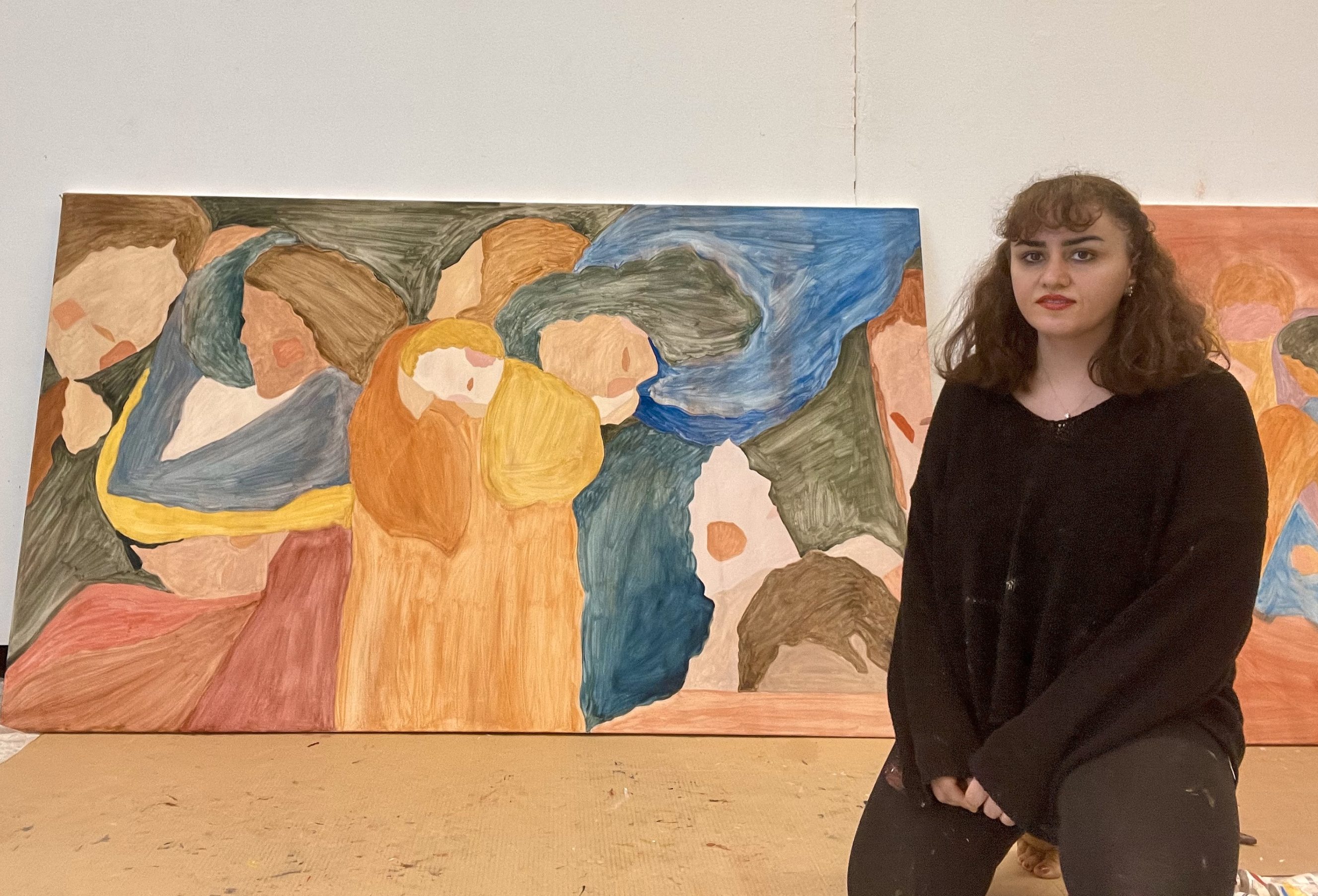
Her paintings are now sold in Europe and the United States, as well as in the Kurdistan Region. She hopes to one day have her own private studio and rely solely on art for her livelihood.
She mentions that the art business has only recently started to develop in the Kurdistan Region, with people now beginning to show interest in original paintings made by the region’s artists.
More recently, she traveled to Italy to take courses in paintings and study the Italian language, as well as to Spain to practice painting and explore her craft freely.
“I would live on art if I could,” Nuradeen says.
Qassim Khidhir has 15 years of experience in journalism and media development in Iraq. He has contributed to both local and international media outlets.

